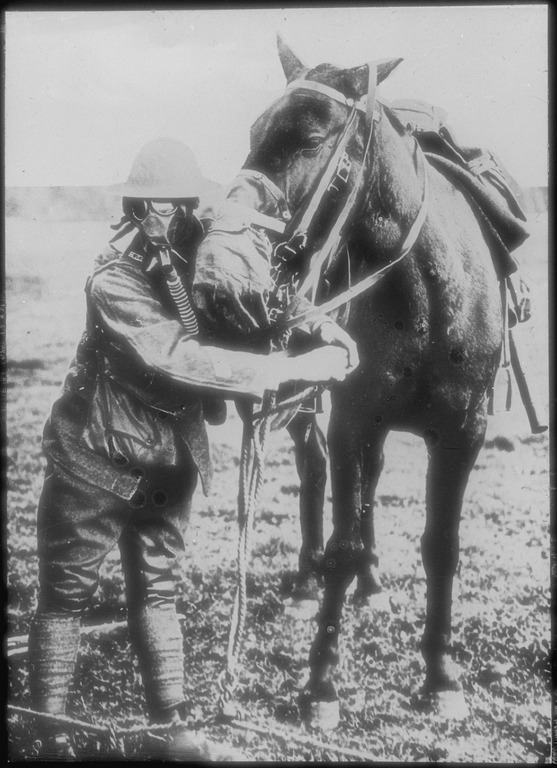
My horse was not opposed to its mask. The other horses had to be broken against fighting the respirator, but my horse loved the feel of its flannelette bag, opened its mouth readily to accept the canvas mouthpiece. Perhaps it loved the moist smell of its own recycled air and was calmed by the faint reminder of oats on its breath.
We were told to practice falling asleep with the mask on, and I was surprised at how easy this was to do. The amplified sounds of my filtered breathing were a type of lullaby; in the mask, I thought of nothing but the sound of my own breath once the lights went out.
My masked dreams were a different story. In them, my masked self and my masked horse jumped together through bright clouds of poison that looked like fog made from paint. Everyone around us was masked; it was hard to tell whom I should help and whom I should kill, who was man and who was horse. The eyes of my mask became opaque with colorful poison until I was completely blind and could hear my respirated breaths becoming panicked.
Other nights I’d dream that the tubes of my horse’s mask were connected to the animal’s organs. Trying to remove his mouthpiece, I pulled upon a long cord whose corrugated cylinder went from grey to pink inside its throat—too late, I realized I was pulling at the horse’s intestines. When I removed my mask to inspect further, I felt the wind stir at a vacancy beneath my eyes and looked into the reflection of a pail of water to find my face was largely missing. I reached out to take off my horse’s mask and saw that he too had no nose once his mask was removed. I quickly put his mask back on, and mine as well.
One morning I woke with a start to remember that I’d forgotten to remove my horse’s mask the previous evening; the poor creature had worn it all night. Running to the barn, I spoke soothing words to the animal and removed the apparatus from its face. Overall the horse seemed unaffected by its prolonged wear, though once the mask was removed, the horse’s top and bottom lips pulled apart immediately as though he urgently needed to get air to his teeth.
*
Secret Americas features writing about images from the U.S. National Archives.
Image via Wikimedia Commons – Gas masks for man and horse demonstrated by American soldier, circa 1917-18, National Archives and Records Administration College Park.
Alissa Nutting’s debut novel, Tampa, will be published by Ecco/HarperCollins in 2013. She is an assistant professor of English and creative writing at John Carroll University.